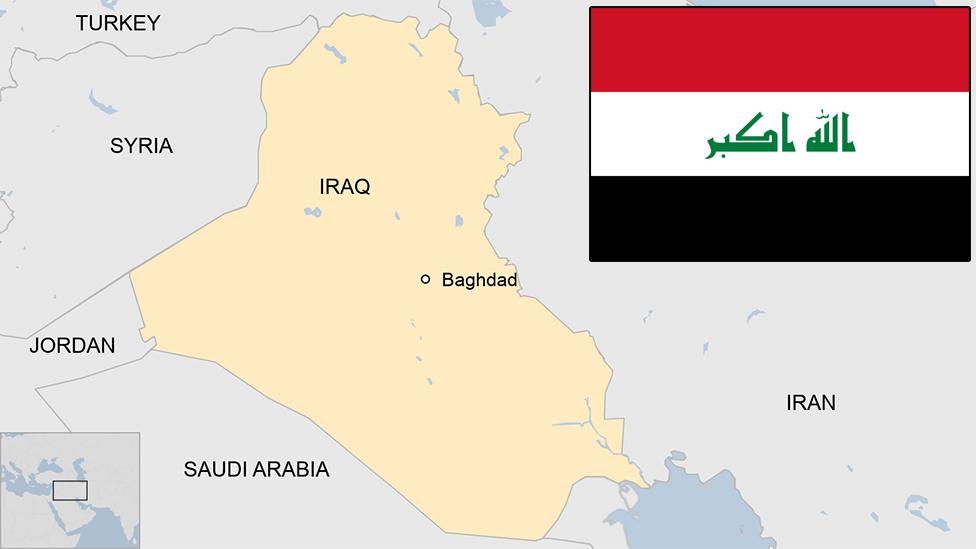Iraq election: Prime minister trails rivals
- Published
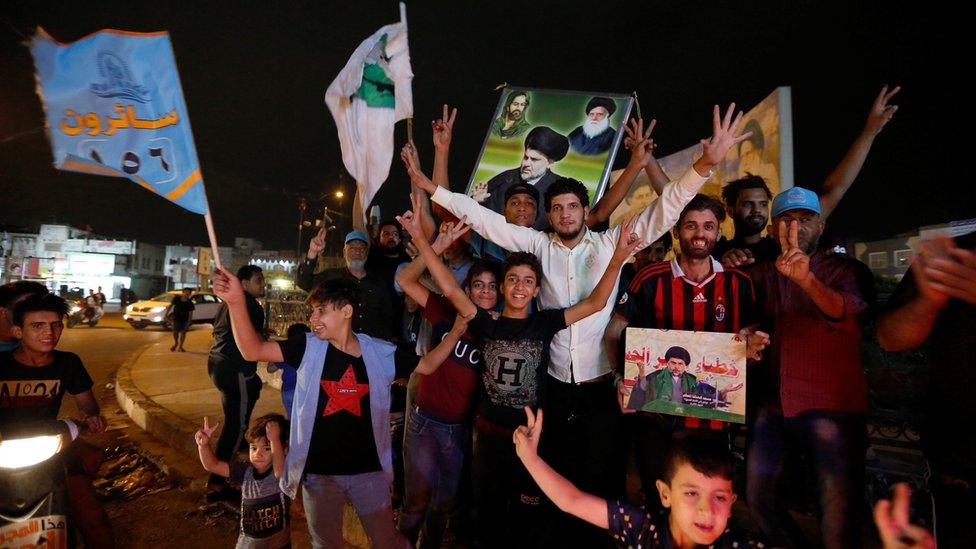
Moqtada al-Sadr's supporters took to the streets of Baghdad early on Monday
The bloc led by Prime Minister Haider al-Abadi is trailing in third place in Iraq's parliamentary elections, according to partial results.
With more than half of votes counted, a nationalist alliance between Shia Muslim cleric Moqtada Sadr and mostly secular groups is in the lead.
It is followed by a bloc linked to Iranian-backed Shia paramilitaries who fought the Islamic State (IS) group.
The elections are the first since Iraq declared victory over IS in December.
The final results are due to be announced later on Monday, triggering what are expected to be lengthy negotiations to form a new coalition government.
The US has called for an "inclusive government, responsive to the needs of all Iraqis".
Some 5,000 American troops are in Iraq supporting local forces in the battle against IS, a Sunni Muslim jihadist group.
What exactly do the results show?
On Sunday night, officials from Iraq's election commission announced the almost full returns from 10 of Iraq's 19 provinces, including Baghdad and Basra.
Female Iraqi MP, Dr Hanan al-Fatlawi, says she's been threatened because of her work
According to these early results:
The Saeroun (Marching Towards Reform) list - an alliance between Mr Sadr's Istiqama (Integrity) party and six mostly secular groups, including the Iraqi communist party - has the most votes in six provinces
Fatah (Conquest) - an alliance that comprises the political wings of militias in the Shia-led paramilitary Hashd al-Shaabi (Popular Mobilisation) force and is led by former Transport Minister Hadi al-Amiri - is ahead in four provinces
The Nasr (Victory) Alliance of Mr Abadi, who is also Shia, is in third place
If Mr Sadr and his allies maintain their position, it will represent a stunning comeback for the cleric, the BBC's Martin Patience reports from Baghdad.
In contrast, our correspondent adds, the early results are a setback for Mr Abadi, who had hoped to capitalise on the defeat of IS to bolster his own chances.
Turnout in the election was 44.5% - much lower than in previous polls.
How important is Moqtada Sadr?
Son of an assassinated Shia cleric, he rose to prominence after the US-led invasion of Iraq in 2003 that toppled Saddam Hussein.
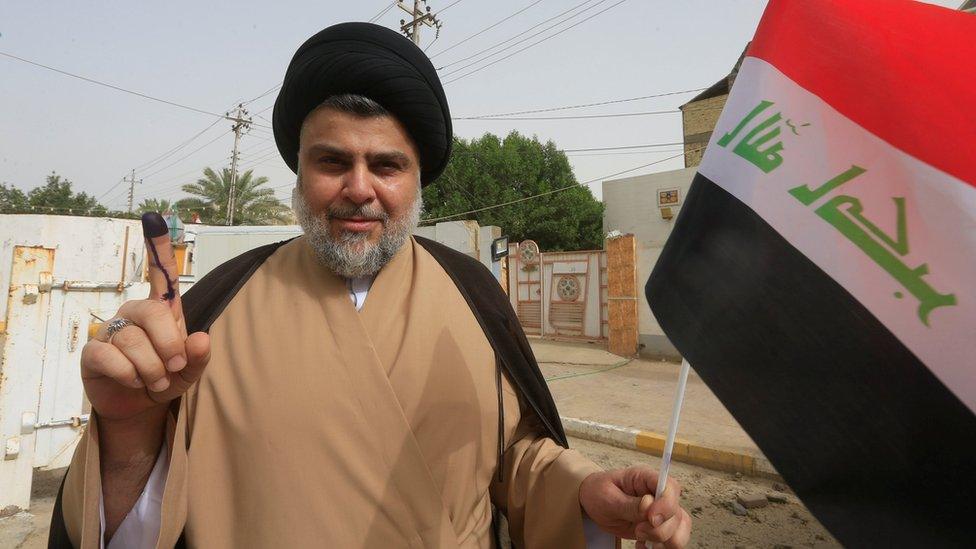
Moqtada Sadr's alliance campaigned on a platform of fighting corruption and investing in services
His fearsome Mehdi Army militia led two uprisings against US forces, whose withdrawal he consistently demanded, and was blamed for the killing of thousands of Sunni Muslims in the sectarian violence that plagued Iraq in 2006 and 2007.
Mr Sadr fled to Iran before the Iraqi government launched a crackdown on the Mehdi Army and remained in self-imposed exile until 2011, after playing a key role in the reappointment of then Prime Minister Nouri al-Maliki.
In recent years, Mr Sadr has distanced himself from Iran and reinvented himself as an Iraqi nationalist and anti-corruption campaigner.
In 2016, his supporters stormed the parliament building in Baghdad's heavily fortified Green Zone when the main political factions resisted their demands that Mr Abadi tackle corruption and replace the ministers in his cabinet with technocrats.
Many Iraqis have lost faith in their politicians
For this year's elections, Mr Sadr's party and its allies campaigned on a platform of fighting corruption and investing in public services.
After the announcement of the partial election results, supporters took to the streets of Baghdad's Sadr City district - named after his late father - to celebrate. One of them said the outcome signalled the start of a "new chapter for the Iraqi people".
Mr Sadr cannot be appointed prime minister as he did not stand in the election but his apparent victory could make him the kingmaker in the coalition negotiations.
What will the next government inherit?
Whoever is named prime minister will have to oversee the reconstruction of Iraq following the battle against IS, which seized control of large parts of the country in 2014.
International donors pledged $30bn (£22bn) at a conference in February but Iraqi officials have estimated that as much as $100bn is required. More than 20,000 homes and businesses were destroyed in the second city of Mosul alone.
More than two million Iraqis are still displaced across the country and IS militants continue to mount deadly attacks despite having lost control of the territory they once held.
- Published12 May 2018
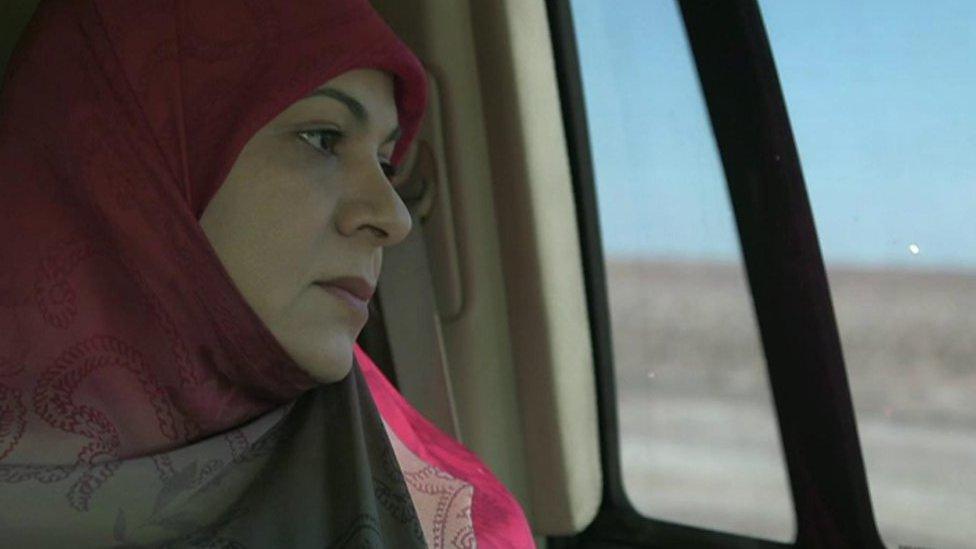
- Published11 May 2018
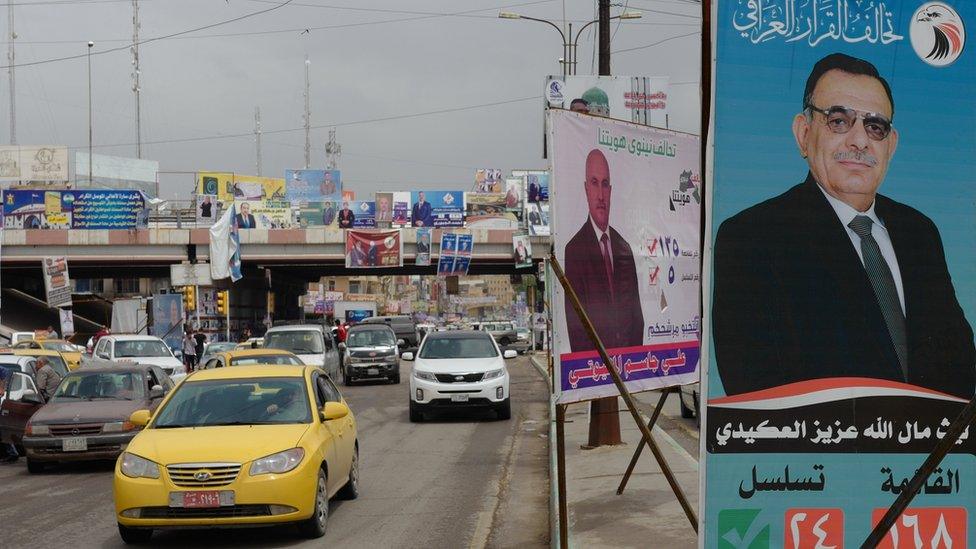
- Published10 May 2018
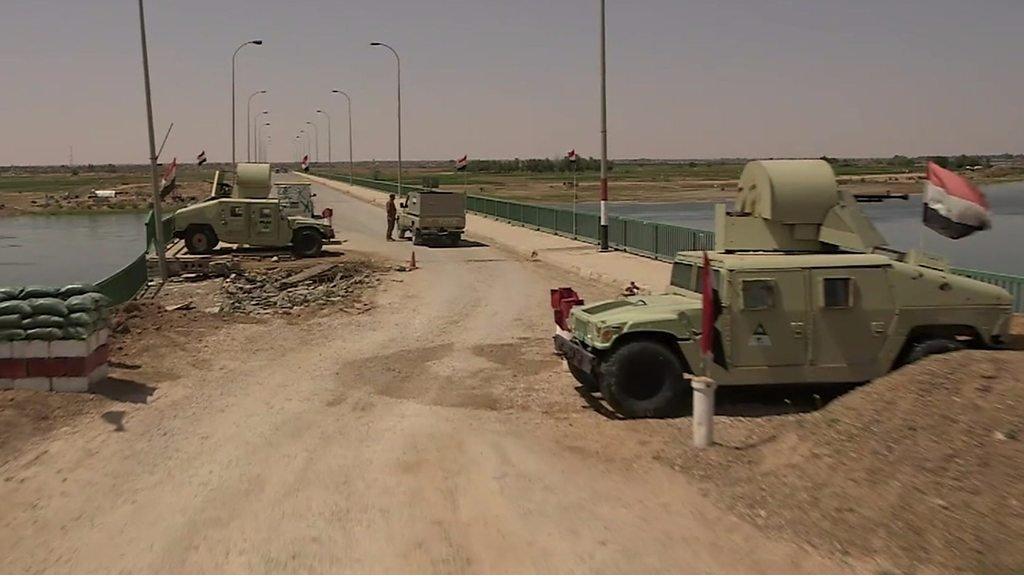
- Published6 May 2018
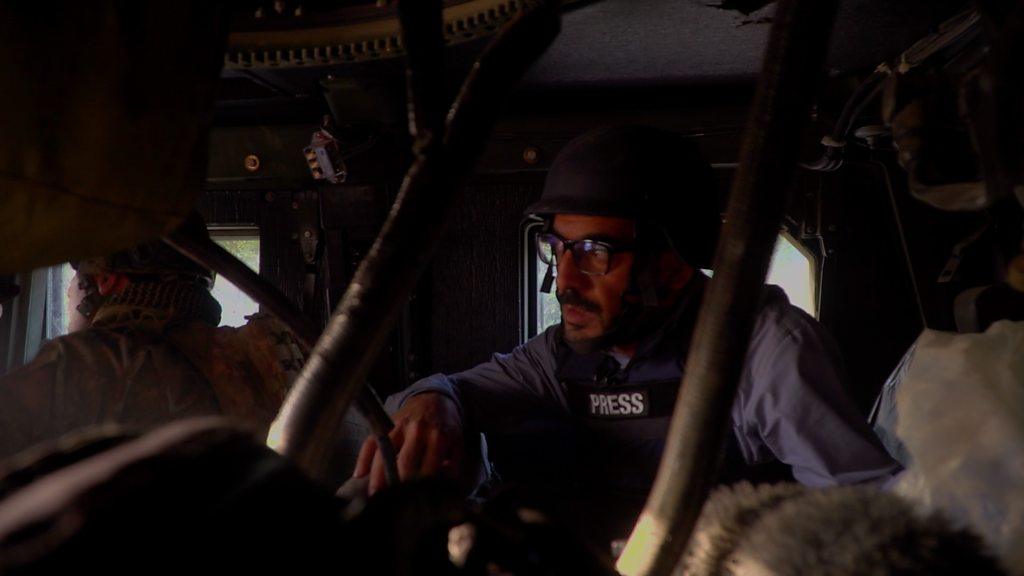
- Published25 April 2018
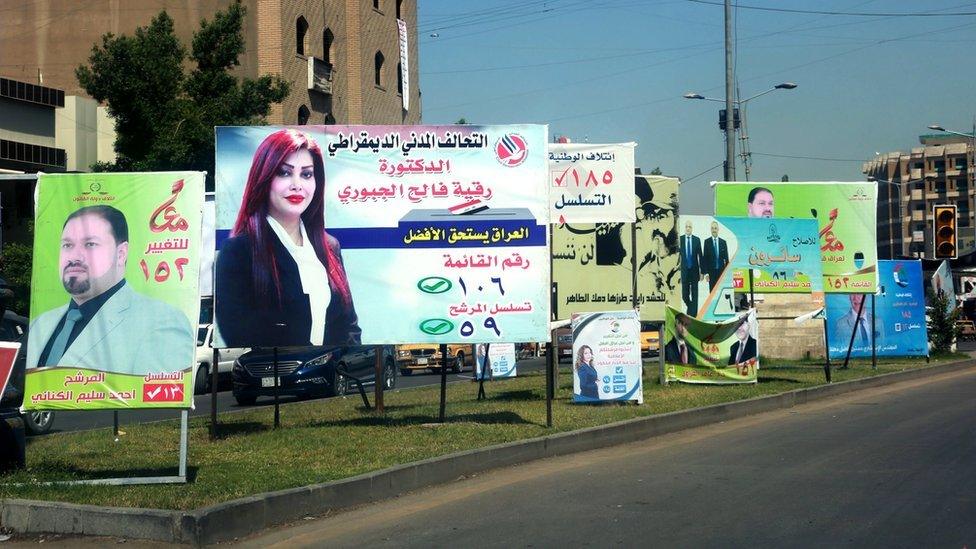
- Published28 March 2018
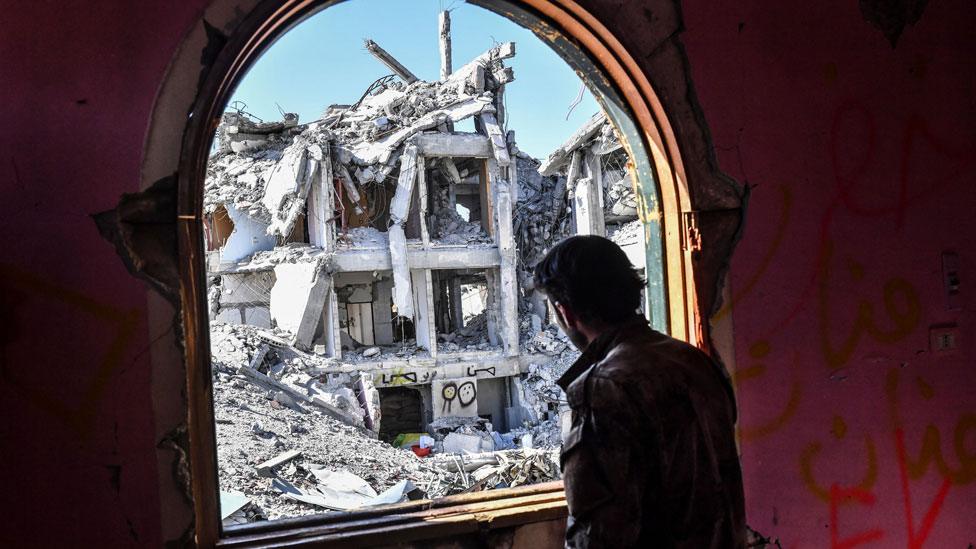
- Published17 October 2017
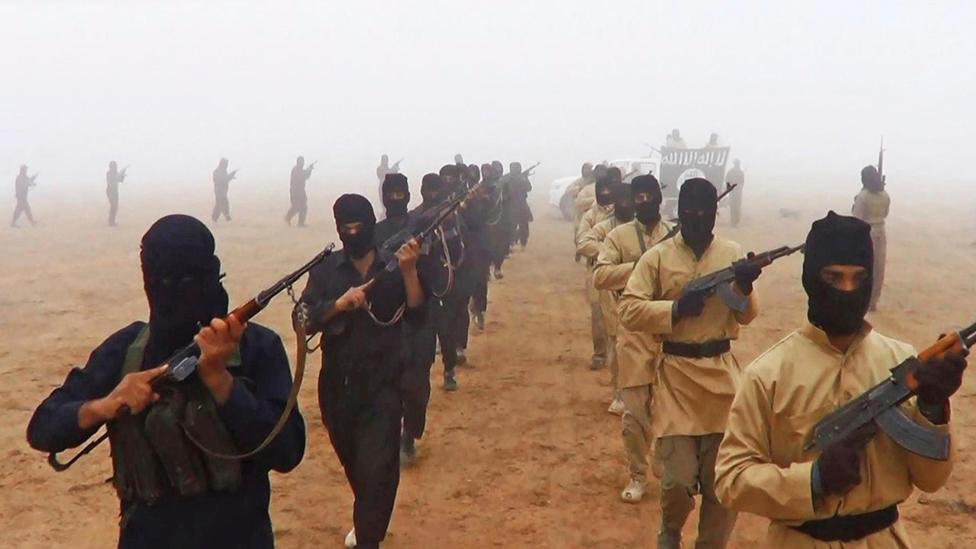
- Published13 September 2023
